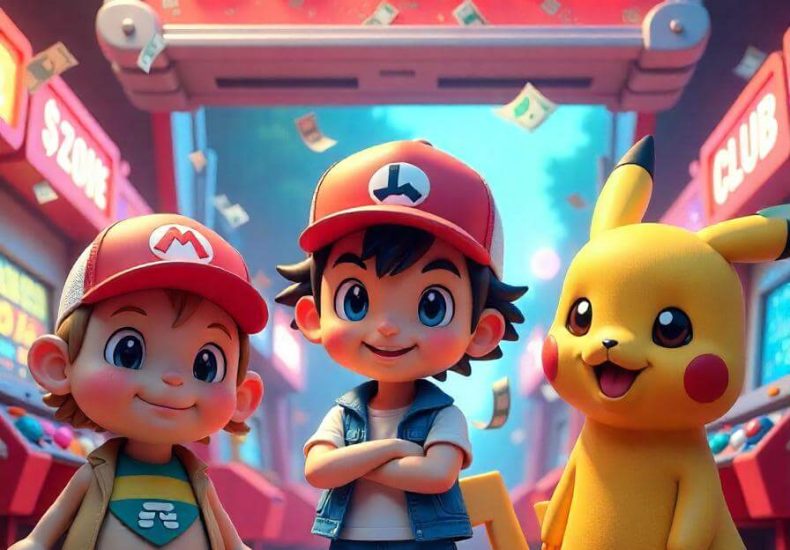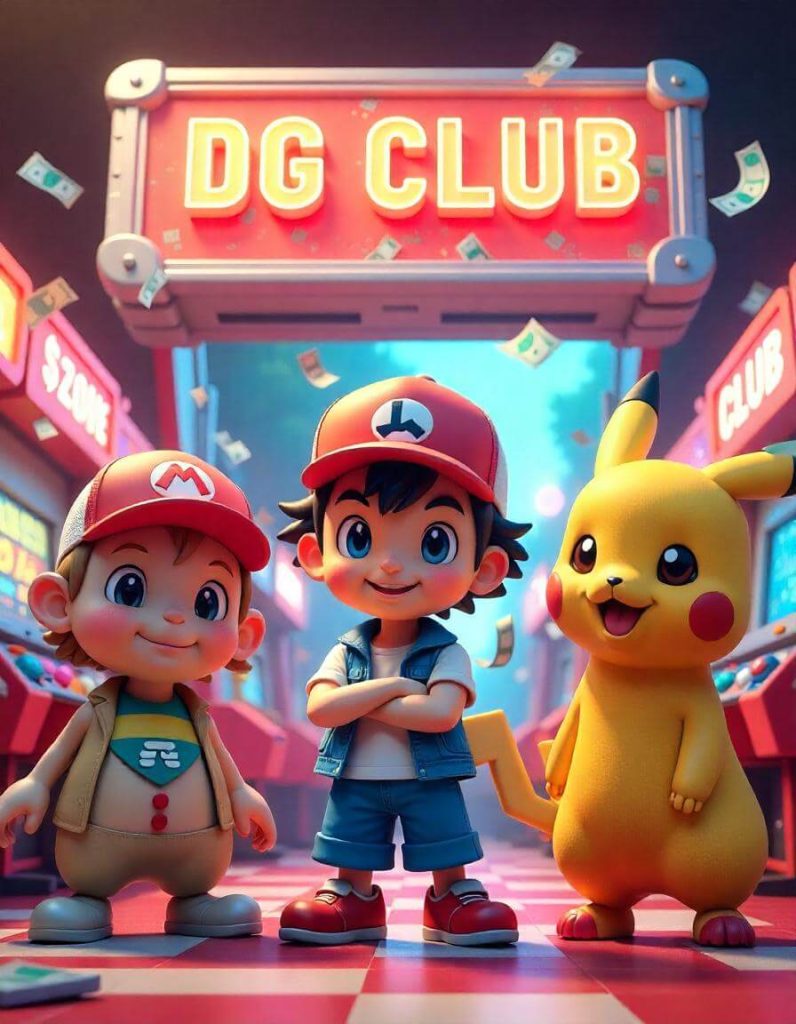
DG Club Lottery 2025: Cognitive & Behavioral Mechanics
Similar to other sectors, DG Club possessives have players and stakeholders in constant search of fun and lucrative opportunities through lotteries and color prediction games. In the realm of lotteries, DG Club promises to deliver entertainment unparalleled to any other platform, while users will have a chance to earn money. As these players navigate through the platform, one must examine the cognitive and behavioral mechanics, which profoundly influ efectos both the game’s design and the participants’ strategies.
Understanding The DG Club Lottery
As the name suggests, The DG Club Lottery 2025 is an online scheme through which various lottery based games are played with the ultimate goal of winning cash prizes. DG Club mixes colorful predictions and various cyber lotteries for all users and allows the users to leverage their intuition, try their luck and be rewarded in return generously.
Nevertheless, the DG Club offers more than just financial appeal. It offers psychological and behavioral aspects as well. Forecasting results, making choices, and taking risks are all essential elements of the DG game. Also, the platform’s layout has a certain impact that can be both positive and negative.
Cognitive Mechanics: The Role of Perception And Decision-Making
Cognitive mechanics are those processes that deal with how a person thinks, perceives, acts, or reacts to a given set of information. In the case of DG Club, assessing probability, estimating risks, choosing a game, and deciding a stake within a certain time frame is required of players. Most of these decisions have an outcome as well as strategy, which makes them a significant part of the gaming experience.
- Luck Versus Skill
The initial cognitive component within the DG Club’s environment deals with how players think they can affect the outcome. Whereas the lottery is mostly based on luck, games like color prediction require an element of guess work. Sometimes, a player’s perception of their ability to predict patterns may be greater than their actual ability, giving them an unjustified sense of control over what is, in essence, chaos. Illusion of control refers to this phenomenal bias, as it often leads players to take more unreasonable risks under the assumption that they can significantly affect the outcome in uncontrollable and mostly luck oriented games.
- Participation in Risk Evaluation
DG Club’s Lottery games involve an endless cycle of risk assessment by players for each and every bet independent of its magnitude. Regardless of the amount played, there is and will always be risk exposure. Studies in risk and cognition have shown that evaluation of risk is always skewed towards short term rewards which more illicit risky behaviour, and this is precisely what we have with color prediction and color lottery games which, more often than not, seem to bring more costly wins even with low chances of winning.
- Rationalization
Lottery participants’ decision-making approaches are influenced by biases, like the gambler’s fallacy. This bias occurs when a person incorrectly assumes that past random events affect future random events. For example, a player may assume that they are “due” for a win after experiencing several losses, leading to an extremely illogical increase in spending. These biases can influence a person’s decision-making process significantly, leading to suboptimal outcomes.
Environmental Context: Action Mechanics
DG Club Lottery 2025 puts more emphasis on outside influences playing a part in a player’s behavior, which can include the design of the game, the interactions taking place during the game, and the social and physical environment surrounding the game.
- Structures for Reward and Reinforcement
In DG Club Lottery 2025, players are kept constantly involved in the game due to the rewarding system that offers frequent smaller prizes alongside an occasional bigger payout. This system triggers the brain’s positive reinforcement mechanisms which encourage further participation. Recessive ratio reinforcement schedules are especially dominant in the lottery and color prediction games. This schedule is when players are rewarded after an unspecified time, which is known to greatly sustain players’ attention and can even promote persistent play during loss periods. Such players are referred to as “the sunk-cost fallacy players.” These players are caught in a loop where they are given reward after reward, and in turn motivates them to keep playing, despite the unfavorable odds.
- Loss Aversion
Loss aversion is another phenomenon defined by the tendency to obsess over losses over gains, suffering a lot more when you lose than how happy you feel when you gain. Gambling and lottery games has players actively involved in this behavior, including those placed by DG Club. Players who are on a losing streak often feel the very strong need to “win back” what they lost, which leads to rampant betting, or what is known as chasing losses. It is often catalyzed by the wish to escape the negative psychological impact associated with losing.
Here in DG Club, this tendency can get worse due to the game’s reward system, which gives players small breaks that feel like wins, fooling them into believes they will get more rewards subsequently. The anticipation along with disappointment leads to a cycle of taking risk after risk which ultimately causes an individual to increase their bets to try and recuperate their losses.
- Social Influence and Peer Comparisons
Online gaming platforms such as DG Club have incorporated an array of multimedia social functions like player statistics, leaderboards, and easter eggs like social media sharing to enhance user interactivity with the game. These elements result in comparison, a social phenomenon where users evaluate their success against other users. This could mean that in DG Club, players may feel obliged to increase their bets or frequency of play to qualify to be on the leaderboard or to post their victories on their social media platforms.
There is a good side to social influence but as much as it can be good, it can also lead players to gamble irresponsibly. Players are able to feel a sense of rivalry or expectation and therefore loose control over moderation and can gamble excessively, plus to some extent, in unpredictable games, the most damage can be done. Sometimes a person can be put in a position where they want to earn social acceptance and attention which will lead them to spend money they don’t have to.
DG Club Lottery: Behavioral Economics’ Clash of Psychology and Economy
Behavioral economics is a study focused on the combination of psychology and economic actions. DG Club Lottery 2025 tries to use some of these aspects to make players remain actively involved in the lottery throughout the entire year. Concepts such as bounded rationality, which refers to the fact that people make decisions due to lack of available information and cognitive shortcuts, and present bias, where people take immediate rewards over deferred ones, help understand the players better on the platform.
The DG Club gamification model with instantaneous rewards and constant feedback caters to the need of players for immediate gratification. In this way, the platform uses these behavioral insights to increase user engagement and maximize participation actively.

Conclusion: The Blending of Cognitive Processes and Behavior
DG Club Lottery 2025 success does not simply stem from randomness, but is deeply connected to the cognition and behavioral mechanics that define how players make decisions and take action. Every single aspect of the platform from how players perceive their control over the outcome of a game to the reinforcement schedules that motivate participation has been crafted to ensure engagement and satisfaction at the highest level. The players movement through this platform is shaped by cognitive and behavioral factors and knowing this can help them to make more rational decisions, mitigate maladaptive actions, and enrich their gaming experience.
DG Club Lottery 2025 is full of great reward possibilities but like any other platform, players have to exercise caution and engage in responsible gaming. Learning about how the psychological constructs create cognitive biases and behavioral patterns can aid players to enjoy the games without exposing themselves to the negative sides of gambling.
You may also like
Calendar
| M | T | W | T | F | S | S |
|---|---|---|---|---|---|---|
| 1 | 2 | 3 | 4 | 5 | 6 | 7 |
| 8 | 9 | 10 | 11 | 12 | 13 | 14 |
| 15 | 16 | 17 | 18 | 19 | 20 | 21 |
| 22 | 23 | 24 | 25 | 26 | 27 | 28 |
| 29 | 30 | |||||